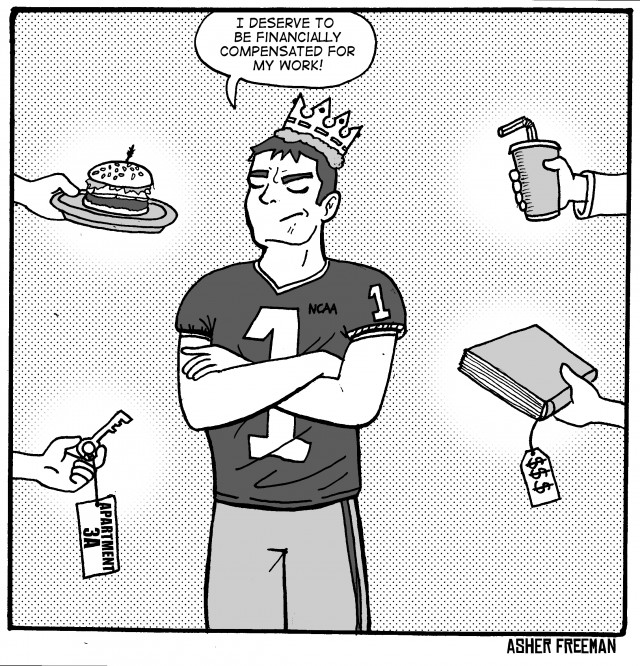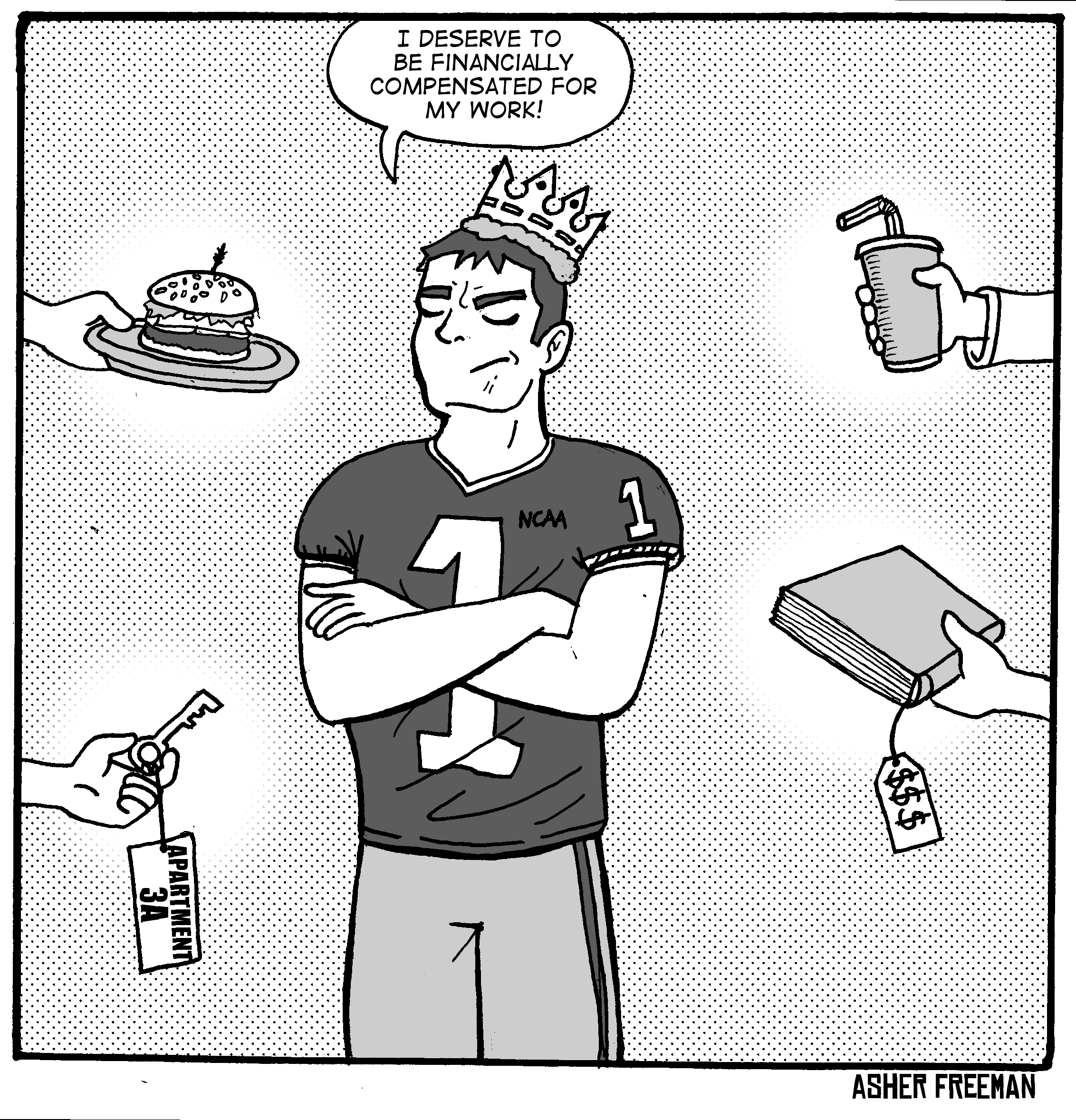 The Ed O’Bannon suit against the NCAA may create a means for student-athletes to receive payment in the future, and it could severely damage college athletics.
The Ed O’Bannon suit against the NCAA may create a means for student-athletes to receive payment in the future, and it could severely damage college athletics.
O’Bannon, on behalf of Division I football and men’s basketball players, is challenging the NCAA in a class action lawsuit because of its propensity for using images of former student-athletes for commercial purposes.
O’Bannon argues that once a student-athlete graduates, he should receive some sort of financial compensation for the NCAA’s commercial uses of a student-athlete’s image.
O’Bannon played college basketball at UCLA and played in the NBA for three seasons before playing professionally overseas until 2004.
U.S. District Judge Claudia Wilken partially certified a class action suit against the NCAA. As a result, there’s been speculation that student-athletes might receive financial compensation in the future or be forced to join a trade association that would negotiate contracts for student-athletes.
The grassroots organization of associations like this began immediately after Wilken’s order to certify a class action against the NCAA.
There are still a lot of questions that need to be asked regarding the future of the NCAA and the ramifications of the O’Bannon lawsuit. Many of those answers depend on the outcome of O’Bannon v. NCAA.
The NCAA has many faults, but its refusal to pay college athletes is not one of them.
Regardless of the class-action lawsuit, student-athletes receive free world-class educations and are provided with elite training and coaching in their respective sports.
The Baylor undergraduate cost for taking 12 or more hours (which all NCAA student-athletes must do in order to remain eligible) will be $49,028 for the 2014-2015 academic year.
Considering that a student-athlete receives five years of education to play four seasons, a student-athlete earns roughly a $200,000 to $250,000 education at Baylor without having to write a check.
Not to mention the countless other benefits student-athletes have. Student-athletes receive free books, a housing stipend, a meal plan and other benefits.
Also, student-athletes have their own academic center at Baylor with free tutoring and academic advising.
Baylor student-athletes also have an entire student-athlete services staff to lean on for support. Student-athletes gain access to any class they need because of their status as a student-athlete.
On top of all of that, why should student-athletes be paid? Granted, some exceptional student-athletes generate massive amounts of revenue for their respective schools, such as Tim Tebow at Florida, Robert Griffin III at Baylor or Johnny Manziel at Texas A&M, just to name a few. But Tebow, RG3 and Manziel are exceptions to the rule. Most student-athletes are not stars, and most do not generate any revenue for their universities.
If O’Bannon wins his suit against the NCAA, it would open up Pandora’s box for NCAA athletics.
Trade associations would become possible for student-athletes, much like professional sports have players unions. College athletes would have contracts that could be negotiated.
Contrary to popular belief, most college athletics programs, as a whole, lose money on athletics. Football generates revenue but that revenue is often dispersed to nonrevenue generating sports like soccer, volleyball, track, cross country, baseball and softball.
Only 23 of 228 athletic departments at NCAA Division I public schools generated enough money on their own to cover their expenses in 2012, according to USA Today.
Considering that 203 out of 228 schools lose money on athletics, and considering that student-athletes already receive an education and benefits valued at hundreds of thousands of dollars, student-athletes should not be paid.
With universities already losing money to sustain athletics programs, paying athletes would only exacerbate the problem and is an unnecessary option. If colleges paid athletes, it would inevitably raise the cost for students and burn an even larger hole in everyone’s checkbook.






